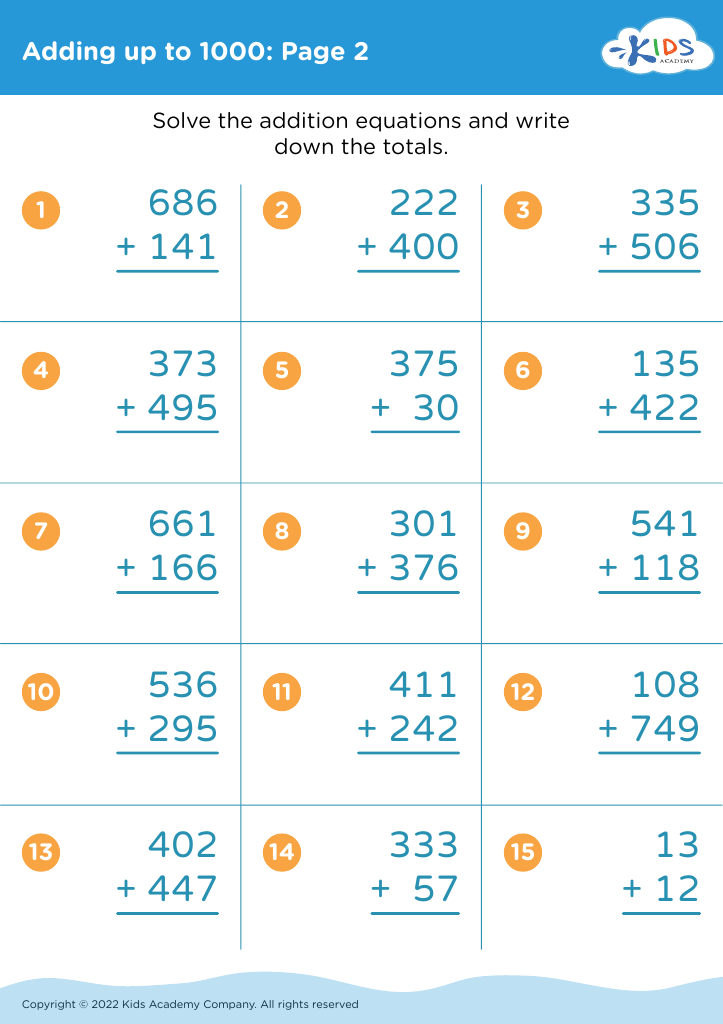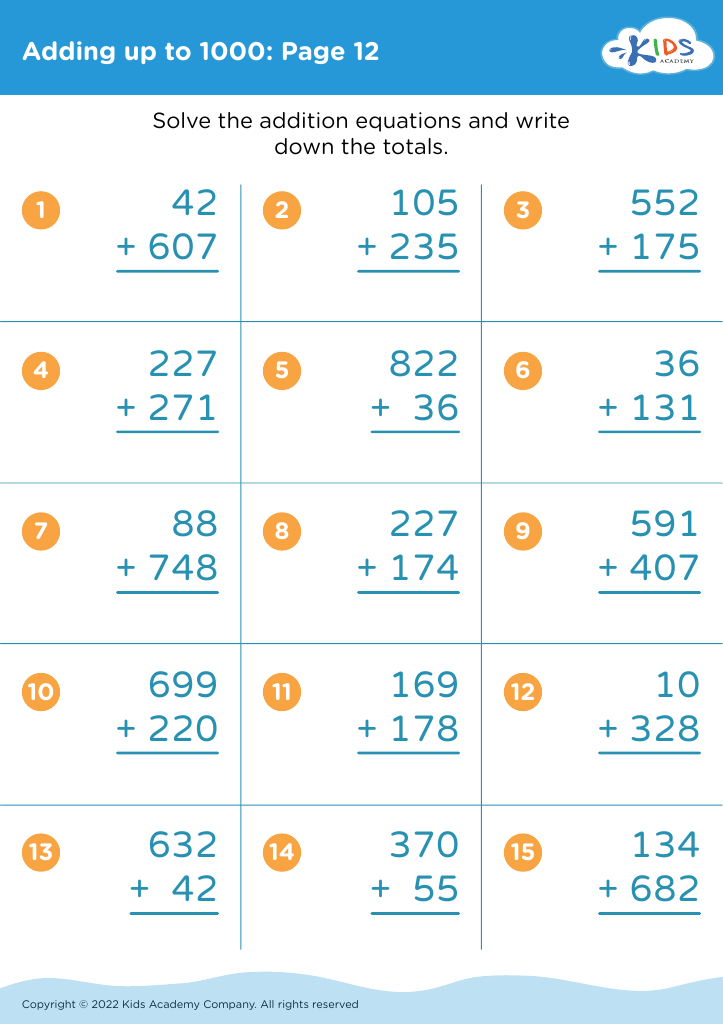Improve reading skills Adding up to 1000 Misc Worksheets for Ages 3-7
3 filtered results
-
From - To
Enhance your child's reading abilities with our extensive collection of printable worksheets tailored for ages 3-7. Our "Improve Reading Skills: Adding Up to 1000 Misc Worksheets" offers fun and engaging activities that support literacy development while intertwining basic math concepts. Each worksheet is designed to boost vocabulary, comprehension, and phonemic awareness through exciting exercises. Your young learners will enjoy exploring colorful visuals and relatable stories that foster a love for reading. Perfect for home or classroom use, these resources ensure a well-rounded approach to learning. Empower your child's educational journey today by accessing our vast selection of versatile worksheets!
Parents and teachers should prioritize improving reading skills in children ages 3-7 because foundational literacy is crucial for long-term academic success and personal growth. Early reading skills not only help children keep up with their peers but also foster a love for learning that can last a lifetime. Research shows that children who develop strong reading abilities in early childhood perform better in all subjects later in school.
Reading also enhances vocabulary and comprehension, contributing to effective communication skills. It encourages imaginative play and critical thinking, as kids learn to make connections between text and the world around them. Furthermore, stories provide valuable lessons and cultural perspectives, helping children develop empathy and understanding of diverse experiences.
Moreover, engaging with books can strengthen the emotional bond between parents, teachers, and children. Shared reading time promotes dialogue, encourages question-asking, and enhances listening skills. Additionally, investing in reading skills during the formative years can address future educational challenges, reducing the likelihood of literacy-related struggles in later grades. By fostering a strong reading foundation, we empower children with the tools they need to explore, discover, and succeed in all their future endeavors. Therefore, investing in reading skills is vital for a child’s holistic development.













